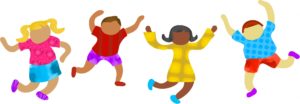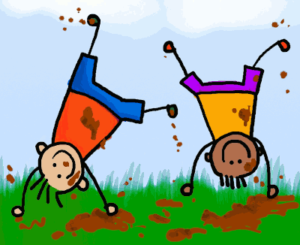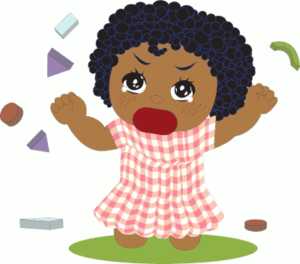Regardless of pros and cons, Head Start provides plenty of wonderful child care and educational services to all children who attend. From singing to counting to eating to napping, Head Start goes above and beyond child care services. Head Starts also connect families to medical, dental, and mental health services that they may not otherwise know exist. If you’re asking yourself if you should send your child to Head Start, then the answer is a resounding yes!
Read More
The pros and cons of Head Start vary widely since it provides more services than other Pre-K solutions. In a nutshell, the pros of Head Start far outweigh the cons. Head Start prepares children for primary school, gives them a social advantage, and kids who go through early childhood education statistically do better later in life. Just remember, the earlier they go in, the better their chances are later in life! The Pros and Cons of Head Start include:
Pros of Head Start
- Head Start is Free
- Transportation is Included (Sometimes)
- Head Start Children Have a Lot of Social Interaction
- Head Start Teachers Are Licensed by Their State
- Head Start Children Are Exposed to a Multicultural Environment
- Your Child Will Learn Daily Life Skills and Routines
- Your Child Will Learn Social Norms That Exist Outside Your Home
- Your Child Will Begin to Build Friendships and Understand Their Meanings
- Your Child Will Become More Independent and Creative
- Your Child Will Have the Opportunity to Compare Themselves to Their Peers
- Your Child Will Understand That There Are Limits and Boundaries at School
- Head Start is Highly Accommodating
Cons of Head Start
- Children Spend Less Time With Their Parents
- Head Start Does Not Celebrate Holidays
- Parents May Not Agree With Teachers’ Decisions
- Teachers Come to Your House
- Your Child Will Come Home Dirty
- Children Should be Potty Trained Before Starting at Head Start
- Children Have Accidents
- Children Will Get Injured on Occasion
- Your Child Will Have the Opportunity to Compare Themselves to Their Peers
Pros of Head Start
If you’re still unsure, let me be clear: send your child to Head Start if they qualify! Despite all of the testimonials, emotions, and uncertainty, the data is clear about early childhood education, and why not send your child to a free school? More details of the pros are below.
Pro: Head Start is Free
Yep! Head Start is free to all those who attend, but you must qualify. While Head Start is for low income families as well as families of children with special needs, there is always a possibility that others will qualify through a lottery system. Check out the Head Start Eligibility Checker at benefits.gov to see if you qualify.
Qualify for Other Benefits
As a side note, if you view yourself as a member of a low income family, then you should check out this great Benefit Finder on benefits.gov.
Pro: Transportation is Included (Sometimes)
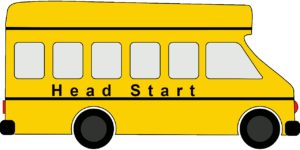 Children who go to school at an earlier age learn a lot of skills that they would not otherwise. Not only that, they learn how to be outside of their home environment and away from their families which increases independence. This independence will also increase their confidence and they become socially competent very early on.
Children who go to school at an earlier age learn a lot of skills that they would not otherwise. Not only that, they learn how to be outside of their home environment and away from their families which increases independence. This independence will also increase their confidence and they become socially competent very early on.
Some of the Kindergarten-ready skills include numbers, colors, shapes, animals, etc. Children also learn how to approach others and properly ask for items. Learning through play is also an important concept that not only help improve other skills, but helps children view learning as fun instead of boring.
Pro: Head Start Children Have a Lot of Social Interaction
 In most Head Start centers, children will experience a wide range of social interactions. Whether it be with their peers, teachers, or other adults that come in and out of the facility, children’s social skills will definitely grow beyond their parents’ expectations. From the moment the students step into the building or classroom, their social skills will improve daily. Staff and teachers immediately make eye contact and greet the students and their caregivers upon entering the building. And the interaction continues throughout the day until they leave the building. Children are constantly interacting during meal time, circle time, story time, center time, play time, etc.
In most Head Start centers, children will experience a wide range of social interactions. Whether it be with their peers, teachers, or other adults that come in and out of the facility, children’s social skills will definitely grow beyond their parents’ expectations. From the moment the students step into the building or classroom, their social skills will improve daily. Staff and teachers immediately make eye contact and greet the students and their caregivers upon entering the building. And the interaction continues throughout the day until they leave the building. Children are constantly interacting during meal time, circle time, story time, center time, play time, etc.
For example, during meal time, we encourage the children to communicate with one another. Teachers start off the conversation by asking the children about the food and how it tastes. From there, the children will give their responses and inputs of their likes and dislikes of the food that they serve to themselves. Not only that, the children will start to let all of us know what their favorite food is and what type of food they eat at home and the conversation begins with students waiting for their turn to talk. At this point, the whole classroom is having a conversation and build those social skills together.
Pro: Head Start Teachers Are Licensed by Their State
Head Start Teachers must hold a qualifying permit that must be valid during their time of teaching. This permit needs to be requested through the government Teaching Credential site. Just like K-12 Teachers, they must meet their professional growth hours to renew their permit and keep it updated.
Other Certifications and Qualifications of Head Start Teachers
Head Start Teachers must also have their CPR and First Aid Certification and it must be valid during their time of employment. It is easy to attain the CPR and First Aid Certification and majority of the time it can be done online. The American Red Cross is one of many organizations that do CPR and First Aid training.
To learn more about being a Head Start teacher, check out our article on the pros and cons of being a Head Start teacher.
Pro: Head Start Children Are Exposed to a Multicultural Environment
This helps give them a better view of what the world is like. Children often grow up isolated in one culture and are unaware of the diversity of the world around them. The earlier your child learns about diversity, the easier it will be for your child to adapt to new environments later in life.
Pro: Your Child Will Learn Daily Life Skills and Routines
It is important for everyone, not just your child, to know that part of life involves a routine that we follow to be successful every day. Head Start teaches your child the importance of daily life skills along with the importance of following a daily routine. Everyday the teachers will remind their students of the schedule. Once the class implements schedule a few times, it becomes a routine. Your child eventually understands that the routine is set and they will automatically follow it.
For example, the whole class will have family meals together, and teachers encourage students to converse with each other while they eat. They will understand that there is a class routine and that they should follow the schedule at all times. For example, outdoor time starts after center time, but everyone must clean up first.
Pro: Your Child Will Learn Social Norms That Exist Outside Your Home
Each Head Start center has their own set of rules. Also, teachers decide what is appropriate and inappropriate in their classrooms. And all of the children are expected to learn these rules. Children will eventually learn what the classroom’s expectations are and what they are allowed to do. If they choose to not follow the classroom’s expectations and/or rules, consequences will follow.
Teachers will actively teach consequences by sharing different scenarios with children and asking them what they would do. This teaches the students to put themselves in their peers’ shoes. It also acts as a reminder to the students prior to doing something they may regret.
For example, how would Bobby feel if Tom hits him for taking a toy Bobby didn’t want to share? What can Tom do instead of hitting Bobby? Children are more likely to put themselves in situations and give you the answers your are seeking. In all, this teaches the students how to handle the situation in a proactive way instead of using a physical force to get what he wants.
All children will eventually learn that hitting, spitting, running in the wrong places, and a lot of other behaviors are not acceptable. This will help your child become more agreeable to build friendships more quickly.
Pro: Your Child Will Begin to Build Friendships and Understand Their Meanings
At three years old, children have difficulty seeing things from their peer’s perspective. They have limited communication skills. Kids may not have the social skills that are needed to interact with other peers close to their age. They may not understand how to share and take turns with their peers. In that case, it is the teachers’ job to teach them those skills.
And believe it or not, teachers model and teach their students how to cooperatively work and play together to build friendships. The power of waiting and taking turns allows the students to be patient and find something else to do until it is their time.
There are times where teachers read books to students about the value of friendships and how friendships are built. This will allow your child to know what is appropriate and not appropriate if they want to play with another child and maintain the friendship.
Pro: Your Child Will Become More Independent and Creative
Head Starts encourage children to be creative and express themselves on paper, verbally, and through play. Learning through play is an important concept that helps students think freely and creatively without consequences from teachers and peers. Additionally, learning through play helps children view learning as a positive thing instead of some boring work, errand, or task. This allows children to be individuals and use their thinking skills.
When students are creating their artwork, it is “their” artwork. Teachers do not tell them what and how to create. Instead, teachers give students access to the materials they need to create their piece of art. However, some students may need guidance or a sample to get them started. Usually, teachers will ask questions to get them going. If it doesn’t happen, teachers will provide a sample hoping it will help the students to continue to finish their work.
Why is Independent and Creative Thinking So Important?
Back when we were in high school, we always asked our teachers, “will we ever use this in the real world?” We all need to get beyond this type of thinking and start asking ourselves, “How can I use this to my advantage and get ahead in life?” The world we live in today did not exist even 20 years ago. This means the world is changing so quickly that not only do our children need to know how to adapt and be flexible, but they need to learn how to welcome the unknown in order to get ahead in life. People who think independently and creatively will be the ones who will be the most flexible and adaptable.
Pro and Con: Your Child Will Have the Opportunity to Compare Themselves to Their Peers
This influences and motivates your child to reach for greater achievements. This form of competition can be both positive and negative, which is why it should be supervised this early in life. Positive comparison and competition that mutually benefits everyone involved is incredibly powerful and can boost success throughout life. Children will build each other up and build positive attitudes, behaviors, and views of themselves and others.
Negative comparisons and competition will undoubtedly drag people down in a race to the bottom. This includes gossip, passive-aggressive comments, fighting, body shaming, and, quite frankly, shaming of any kind. Everyone needs to steer clear of this mentality.
Pro: Your Child Will Understand That There Are Limits and Boundaries at School
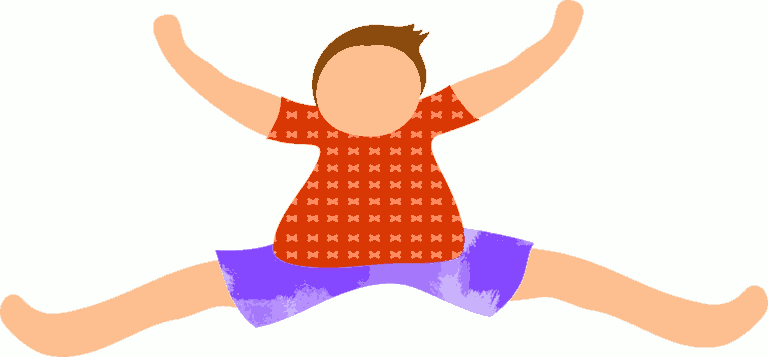
The things your child does at home will not always be acceptable at school. Your child will adapt to what is acceptable/unacceptable in the school setting. This will teach your child at an early age that there are limits and boundaries not just at school but also everywhere they go. For example, going to the zoo. The child needs to be cautious and careful at all times to be safe. Only certain food that the children can feed the animals and not just any kind of food so the animals will not get sick. Other examples include going to the restaurant, you must have proper attire. Or going to a friend’s house, you need to be appropriate and have manners. And the list goes on!
Pro: Head Start is Highly Accommodating
Head Starts are accommodating by nature, since their mission is to help low income families. Law also requires Head Starts to accommodate those with dietary requirements and special needs, including children on the Autism spectrum.
For example, children who are delayed in speech will be assessed and referred for a specialist as required. Any number of things can happen at that point, depending on the discussions and meetings you have with the teacher and/or specialist.
Cons of Head Start
Head Starts have their cons, just like anything else. Parents and children will have difficulty adapting to being away from each other, parents will disagree with teachers, and other conflicts will naturally happen as everyone adjusts to the schooling process. We still highly recommend sending your child to Head Start as we think the pros far outweigh the cons.
Con: Children Spend Less Time With Their Parents
Parents will need to adapt to the new influences in their child’s life, which they may or may not like. Depending on the program, children are enrolled in a half day or full day program. Not only that, children will build relationships and trust with other adults at the center. Parents will find their child coming home with new behaviors which they may agree or disagree with. In this case, parents can always communicate their concerns to the teachers to find a solution that works for everyone.
Con: Head Start Does Not Celebrate Holidays
Most Head Start programs do not celebrate holidays. They are not allowed to celebrate Christmas, Thanksgiving, Easter, etc, in order to respect all of the different cultures that attend Head Start. However, there are teachers who do arts and crafts related to the holidays that are typically celebrated in the world. Instead of saying it is an Easter bunny, teachers have students decorate a bunny and pretend to be a bunny hopping around in the classroom in the month of April.
Con: Parents May Not Agree With Teachers’ Decisions
As we all know, not everyone is right. Not everyone agrees with each other. We all have our own perspective and point of view for our own personal reasons. Sometimes decisions are made in the best interest of an entire class, but a parent believes is not in the best interest of their child. This can create conflict and arguments. Teachers will take time to meet with parents to discuss and resolve these matters. In a worst case scenario, teachers usually give the parents what they want to keep a positive environment. For example, parents don’t want their child playing with sand because they feel it is unsafe and dangerous. In this case, teachers will accommodate the parents and let the child pick something different to play with to respect their parents’ decision.
Con: Teachers Come to Your House
For most Head Start program, teachers will do two home visits and two parent conferences per year to assess your child’s capabilities in the home setting. Some parents don’t like other people coming to their house even if they have signed and acknowledged the center’s policy. Head Start will accommodate this issue, especially for those parents who work and their schedule is limited. In this matter, Head Start teachers will meet with parents at a different location or even at the center to make the parents feel comfortable.
Con: Your Child Will Come Home Dirty
Head Start teachers encourage children to explore everything available to them, such as paint, playdough, slime, sandboxes, water, etc. Prepare yourself to put an extra pair of clothing at your child’s school. Oh and don’t be surprised if your child comes home with paint on their face or on their body. Head Start teachers do their best to make sure your child is clean before heading home, but they can miss the hidden areas.
Con: Children Should be Potty Trained Before Starting at Head Start
This only includes the 3-5 year old Head Start groups. There is some leniency if potty training is still in progress, but the more trained the better for everyone. If your child is not potty trained and they are attending Head Start, make sure to bring extra clothes to school, or else you will be receiving a call to pick up your child when they eventually do have a bathroom emergency/accident. The school will clothe your child if it has extra clothes laying around, but don’t always count on it. Make sure to wash and return the borrowed clothes your child used.
Con: Children Have Accidents
If your child has a potty accident in their pants, the teachers will clean and change them into their extra pair of clothes. However, if your child potties multiple times, they may be sent home and a toileting plan will be put in place before they can return to school.
Con: Children Will Get Injured on Occasion
Injuries can happen for a few reasons. Kids will hit and push each other, say negative things to each other, or accidentally hurt themselves with objects or by falling. This is a typical ongoing occurrence but can be stressful to all of the adults involved, especially parents. Please be understanding to these situations. Teachers do their best to prevent incidents from occurring.
If your child is involved in an incident, whether or not they are the one who is injured or not, usually you will receive a call or incident report. If the incident is severe, you will get a call from the school to inform you of what happened and how you want the staff to proceed.
What Did You Learn Today?
This is a lot of information for you to take in, but it’s important to understand your child’s environment when you’re not around. The bottom line is the pros of Head Start easily top the cons. Will your child be safe at Head Start? Absolutely! Will your child learn and grow while you’re not around? Yes! Should you be afraid of leaving your child somewhere without you? No, but make sure you do your homework and analyze anywhere you place your child as they will absorb their environment everywhere they go. Good luck, and don’t forget to ask questions!


